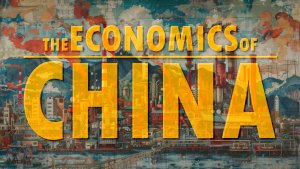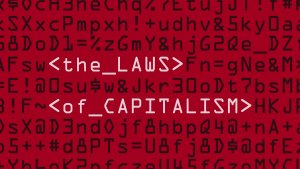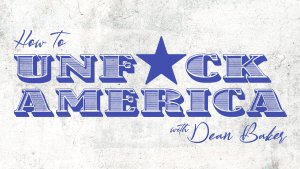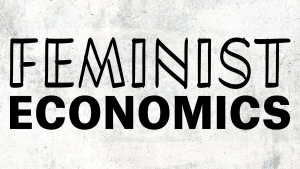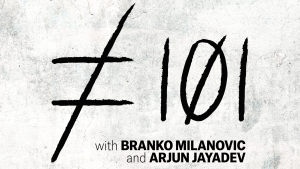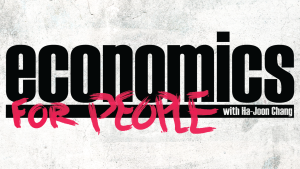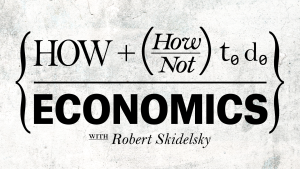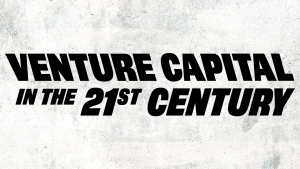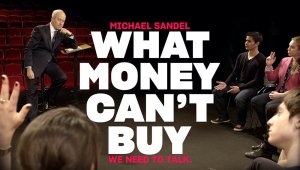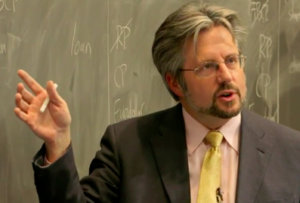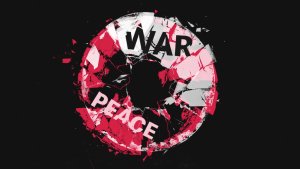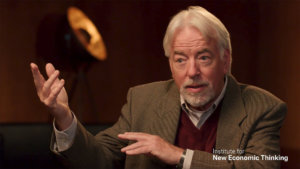In this seven-part series, Professor James Boyce delivers a deep, thought-provoking analysis of a topic often ignored or labeled as “non-economic” by mainstream economists. The series opens with a historical exploration of both successes and failures in using economics to end wars and sustain peace. Boyce then delves into the complex interplay of greed and grievances in civil wars, drawing from his first-hand experience in post-war El Salvador in the 1990s.
Throughout the series, Boyce critiques conventional economic wisdom, particularly in areas such as efficiency, debt, tariffs, and the taxation of foreign aid in countries transitioning from war to peace. In the concluding episodes, he highlights the critical challenges and dilemmas economists must confront to address the enormous costs of war. Boyce argues that only by reimagining its role and shedding ideological biases can economic theory truly help humanity understand how to invest in lasting peace.
EPISODE 1
Why Care About Wars?
Professor Boyce highlights why too many economists think war and peace are not an “economic” problem.
Traditionally, the arguments are, “If you want to study war, then talk to a political scientist,” or “If economists get markets and the economy to work efficiently, then the chances of social unrest that leads to war decrease, and peace is more likely to be achieved.” Boyce challenges this conventional wisdom by highlighting three key costs of war: human costs, financial costs, and environmental costs. He argues that when we recognize the enormous stakes, it is clear why economists should analyze war and peace. To illustrate how economists can engage in this terrain, he discusses his experience in El Salvador after the 1992 Chapultepec Peace Accords that ended the country's civil war.
Suggested Reading List
Brown University, Costs of War Project, “Teaching the Costs of War.” Multimedia resources online athttps://watson.brown.edu/costsofwar/teaching.
A. Khorram-Manesh et al., Estimating the number of civilian casualties in modern armed conflicts – a systematic review,’ Frontiers in Public Health, 2021.
KPMG, Post-war Reconstruction of Economy: Case Studies. 2022. [pdf here]
Alvaro de Soto and Graciana del Castillo, “Obstacles to Peacebuilding,” Foreign Policy, March 1994.
James K. Boyce, ed., Economic Policy for Building Peace: The Lessons of El Salvador, 1996.
Guide | Timestamp | ||
Intro | 0–1:12 | ||
The Costs of War | 1:20 - 6:18 | ||
Human Costs | |||
Global Combat Deaths | 1946-2008: PRIO 2009-2022: WB | ||
Major Military Mortality | Khorram-Manesh et al., 2021 | ||
Burden on Children | Daily Mail 2015 | ||
Financial Costs | |||
Photo | Mostar 1994 | ||
Direct and Indirect Costs of War | KPMG 2022 | ||
U.S. Post-9/11 War Spending | Brown 2021 | ||
Environmental Costs | |||
Military Greenhouse Gases | Brown 2019 | ||
Kuwait | National News 2021 | 4:00 | |
Oil Field Fires | 4:04 | ||
Landmines | 4:17 | ||
Zimbabwe Unexploded Bombs | ADF 2022 | 4:38 | |
Vietnam - Agent Orange - Natural Spring | NYT 1974 NYT 2014 | 5:00 | |
|
Lessons from El Salvador 1979-91 | 6:19-13:21 | ||
Civil War | Center for Justice and Accountability | 6:36 | |
Farabundo Martí National Liberation Front (FMLN) | American Archive of Public Broadcasting | 7:17 | |
Farabundo Marí | Oxford | 7:31 | |
14 Families | LA Times | 7:43 | |
Chapultepec Peace Accords, Mexico City | Notre Dame | 8:55 | |
Outcomes of Peace Accords |
| 9:49-10:14 | |
El Salvador Report | Adjustment toward peace: An introduction | Boyce, World Development, 1995 | 11:33 |
1993: A New Approach | 13:21-End | ||
Álavaro De Soto | International Center for Transitional Justice | 13:32 | |
Graciana Del Castillo | Carnegie Council for Ethics in International Affairs | 13:41 | |
Obstacles to Peacebuilding | Foreign Policy | 13:47 | |
| Implementation of peace accords and economic policy needed to be harmonized. | 15:15 | |
Adjustment Towards Peace Project | 15:42 | ||
Key Takes Aways | Conventional macro policies failed to take into account the cost of peace agreements. | 16:39 | |
El Salvador very reluctantly agreed to fund peace process programs. | 18:17 | ||
World Bank & IMF support was not conditional on funding peace. | 20:05 | ||
EPISODE 2
Lessons From History
Professor Boyce discusses what we can learn about economics from earlier wars.
The wars of conquest of the colonial era are prime examples of plunder, in which the occupiers benefit from resource extraction and the monopolization of trade. The settlement terms after World War I helped to set the stage for World War Two, which in turn helped to set the stage for the Cold War. The legacies of these conflicts include ongoing plunder in developing countries, the growth of a permanent arms industry, and proxy wars fought in Latin America, Africa, and Asia. Boyce reminds us that while violent conflict brings suffering to many, it also brings profits to some, and that international actors are often deeply involved in “civil wars” and, by implication, in their resolution.
Suggested Reading List
John Maynard Keynes, The Economic Consequences of the Peace, 1919.
Cheryl Payer, “The Transfer Problem,” in Lent and Lost: Foreign Credit and Third World Development, 1991, chapter 4.
Gar Alperovitz, “Historians Reassess: Did We Need to Drop the Bomb?” in Kai Bird and Lawrence Lifschultz, eds., Hiroshima’s Shadow, 1998, pp. 5-21.
Guide | Timestamp | |||
Intro | 0-0:24 | |||
Plunder - Wars of Conquest | 0:31-2:49 | |||
Rubber plantation Belgian Congo, 1899 | ||||
The Kimberley diamond mine, Dutch Colonial South Africa, 1872 | ||||
Enslaved Africans in the USA and Brazil 19th century | ||||
Native American labor in mines of Spanish America | . | |||
Plunder, as a part of Primitive Accumulation, became the rule of law. | ||||
|
Monopolization of Trade | 2:50-3:57 | |||
English East India Company in South Asia | ||||
Dutch East India Company in now Indonesia | ||||
Wars of Independence | 3:58-11:05 | |||
World War One | 4:10 | |||
Fatalities | 4:36 | |||
Armenian Genocide, ANI | 4:44 | |||
Spanish Flu, National Archives | 4:55 | |||
Treaty of Versailles, OTH | 5:00 | |||
John Maynard Keynes, HET The Economic Consequences of the Peace, 1919 | 5:24 | |||
World War Two | 6:11 | |||
Marshall Plan, National Archives | 7:17 | |||
General George C. Marshall, HOOSD | 7:19 | |||
Why was the Marshall Plan so generous? |
| 8:25 | ||
“Vast Power of Allocating and Withholding Money” Haberler 1948 | 9:27 | |||
Take-home lessons: |
| 9:52 | ||
Postwar Land reforms in East Asia | 11:06-12:54 | |||
East Asia Miracle World Bank | 11:17 | |||
Postwar Land reforms in East Asia | ||||
Nagasaki and Hiroshima Bombing | 12:34 | |||
The Cold War | 12:55-15:57 | |||
General Dwight D. Eisenhower: Atom bomb ‘completely unnecessary’ | Hiroshima’s Shadow - Bird & Lifschultz 1998 | |||
Fleet Admiral William Leahy | The Atlantic 1950 | |||
Repercussions |
| 14:29 | ||
| 14:40 | |||
Eisenhower’s Farewell Address 1961 & Military Industrial Complex. Watch: HERE Text: HERE | 14:54 | |||
Proxy Wars in Global South | 15:58-19:12 | |||
Central America (El Salvador, Nicaragua, & Guatemala) | 16:10 | |||
Angola War of Independence (1961-1975) | 16:24 | |||
Vietnam War (1955-1975) | 16:51 | |||
The Afghan War (1978-1992), Britannica | 17:44 | |||
Take-home Lessons |
| 19:13-End | ||
EPISODE 3
Greed, Grievance, & Civil Wars
Professor Boyce discusses the roles of greed and grievance in the emergence and persistence of civil wars.
Greed, the “quest for loot,” is a socially perverse variant of individually rational behavior. Grievance stems from injustice, exclusion, and high degrees of inequality. While distinct, the two are not mutually exclusive: both can be part of the same story. Moreover, they are mutually reinforcing, as excesses of greed (i.e., oligarchy, kleptocracy) lead to grievances, which in turn lead to opportunities for greedy leaders to capitalize on discontent. The role of greed and grievance as both drivers and consequences of war helps to expose the inadequacy of the usual “shrug and smug” reactions of economists to violent conflict.
Suggested Reading List
Mats Berdal, “Beyond Greed and Grievance,” Review of International Studies, 2005.
Frances Stewart, “Horizontal inequalities,” World Social Science Report 2016 (UNESCO) chapter 7. [pdf here]
Léonce Ndikumana and Kisangani Emizet, “The Economics of Civil War: The case of the Democratic Republic of Congo,” in Paul Collier and Nicholas Sambanis, eds., Understanding Civil War, Vol. 1: Africa, 2005, chapter 3. [pdf here]
Adam Hochschild, “It Takes a Villa,” The New Yorker, March 24, 199.
Guide | Timestamp | ||
Intro | 0-1:32 | ||
Greed versus Grievance | |||
“He may be a son of a bitch, but at least he’s our son of a bitch” | |||
“Good Governance”, World Bank, WB | |||
Doing Well Out of War | WB 1999 | ||
Economics of Civil War | 1:55- | ||
“Ancient Ethnic Hatreds” | 2:02 | ||
Greed | 2:59-5:23 | ||
Definition: a socially perverse variant of individually rational behavior or “quest for loot.” | 3:12 | ||
Proxy for Greed: Share of primary commodity exports in the country’s GDP | 3:46 | ||
“Blood Diamonds” | 4:37 | ||
Policy Prescription: Strengthen the rule of law and good governance | 4:44 | ||
Grievance | 5:24-9:01 | ||
Definition: Centered on injustice, exclusion, and high degrees of inequality as the drivers of discontent, rebellion, and civil war. | |||
Policy Prescription: Distributional Justice and Inclusion. | 5:48 | ||
Measurement: Gini Coefficient of income distribution. | 6:35 | ||
3 Problems:
| 7:07 | ||
Horizontal Inequality: Inequalities of wealth, income, and power between social groups (race, ethnicity, religion, language, region) | 8:29 | ||
War & Music Bob Marley Song: HERE Lyrics: HERE | 8:40 | ||
Greed and Grievance | 9:02-11:00 | ||
Key Points | |||
| |||
*Zaire: A Case Study In Greed and Grievance *now known as the Democratic Republic of Congo (DRC) | 11:01-15:15 | ||
Africa’s Odious Debts, Boyce & Ndikumana, 2011 | |||
Mobutu Sese Seko, Britannica, BMJ 2008 | 11:21 | ||
Zaire Capital Flight, Boyce & Ndikumana 2022 | 12:23-15:16 | ||
15:17-End | |||
The Paradox of Plenty | 16:12 | ||
Take-home Lessons |
| ||
EPISODE 4
War-to-Peace Transitions: Balances of Power
Professor Boyce presents the first installment of an examination of transitions from war to peace by examining the impacts of economic policies on balances of power.
These include balances within warring parties between pro-peace and pro-war factions; distributional impacts on vertical and horizontal inequality; and the role of the “fiscal compact” between government and citizens in state building. Boyce illustrates with case studies of El Salvador’s civil war (1979-1991), the Bosnian war (1992-1995), and the war in Afghanistan (2001-2021), analyzing how these played out differently in each and the lessons of these experiences for economists as they contemplate the economics of peacebuilding.
Suggested Reading List
James K. Boyce, Investing in Peace: Aid and Conditionality after Civil Wars, 2002, chapters 1-3.
OECD, Do No Harm: International Support for Statebuilding, 2010. [pdf here]
James K. Boyce and Madalene O’Donnell, eds., Peace and the Public Purse: Economic Policies for Postwar Statebuilding, 2007.
Guide | Timestamp | ||
Intro | 0-1:02 | ||
3 Issues | 1:04 | ||
| |||
1. Balances of Power | 1:26-14:01 | ||
How Wars End Negotiated settlement vs. Winner-take-all outcomes | |||
Negotiated Settlements:
| |||
| 1:26 | ||
International Community Toolkit | 2:56 | ||
| |||
Balances of Power between Parties in El Salvador | 3:34 | ||
| |||
Bosnian War (1992-1995) | 7:12 | ||
Srebrenica massacre mass grave (11-19 July 1995) | 7:55 | ||
Peace Talks, Dayton, USA, 10-14 August, 1995 | 8:30 | ||
Conditions of Assistance | 8:45 | ||
Resettlement money used as a carrot | |||
Mostar, Bosnia | 10:35 | ||
Hans Koschnick, EU administrator of Mostar | 11:05 | ||
| 12:05 | ||
2. Distributional Impacts of Economic Policies in Afghanistan | 13:36-19:33 | ||
War in Afghanistan, 2001-2021 | |||
Fiscal Policy | 14:02 | ||
→ Tension with business-as-usual prescriptions, e.g., with regard to tariffs.
→ Tension with business-as-usual prescriptions, e.g., maximize growth and assume benefits will trickle down (aka “betting on the strong”)
| |||
Horizontal Inequality | 16:47 | ||
Inequality across population subgroups:
| |||
Peace and the Public Purse, Boyce and O’Donnell 2007 | 17:55 | ||
The Budget as the Lynchpin of the State: Lessons from Afghanistan Ghani 2007 (chapter in the above book) | |||
Ashraf Ghani, President, Afghanistan, 2014-2021 | 18:30 | ||
3. State Building | 19:34-End | ||
| |||
EPISODE 5
War-to-Peace Transitions: Peace and Public Purse
Professor Boyce challenges traditional economic thinking by proposing three unconventional methods to mobilize domestic revenues in countries emerging from violent conflict.
The first is by means of tariffs, which although indiscriminately disparaged by mainstream economists in the name of trade liberalization offer the most administratively feasible way to raise revenue. In particular, Boyce recommends tariffs on luxury goods such as automobiles, private airplanes, and yachts. The second is taxing the post-conflict aid boom, rather than giving across-the-board exemptions that send the message that the rich should not pay taxes. Third, he advocates treating natural resources as sovereign wealth, protecting the country from foreign and local rent-seekers and treating mineral and forest resources as belonging in equal measure to all citizens. Boyce then turns to the expenditure side of the equation, focusing on distributional impacts and on who sells goods to the government.
Suggested Reading List
James K. Boyce, Investing in Peace: Aid and Conditionality after Civil Wars, 2002, chapters 1-3.
OECD, Do No Harm: International Support for Statebuilding, 2010. [pdf here]
James K. Boyce and Madalene O’Donnell, eds., Peace and the Public Purse: Economic Policies for Postwar Statebuilding, 2007.
Subject | Reference | Link | Timestamp |
Intro | 0-0:47 | ||
4 Dilemmas
| |||
Humanitarian | 0:55-8:57 | ||
Potential negative effects on vulnerable populations:
| |||
Smart Aid
| 6:16 | ||
Humanitarian Exemptions
Definition: Assisting civilians is easier than protecting them from violence. “The Specter of the Well-fed Dead.” | 7:18 | ||
Corruption | 8:58-13:40 | ||
| 10:07 | ||
Debt Legacy Dilemma | 13:41-21:59 | ||
| |||
Odious Debt Spanish-American War, April 21-December 10, 1898 | 16:58 | ||
Havana, Cuba 1898 Peace Negotiations, Paris, December 19, 1898, LOC | 17:17 | ||
Doctrine of Odious Debt
| 18:14 | ||
| 19:20 | ||
Partition | 22:00-26:39 | ||
Is dividing territory into separate, stand-alone entities a recipe for self-determination or perpetual conflict? | |||
Palestine and Israel “Two-state Solution.” Separate Parties into Different States
| 23:08 | ||
Short Run = Expediency and seems attractive Long Run = Prognosis. Demonizing the other state that used to be one state. Recipe for perpetual conflict and aggression that leads to war. Oslo Accords, 1993, OTH | 24:48 | ||
Take-home Lessons Short Run vs Long Run
Economists can’t use traditional cost-benefit analysis, but this short-run vs. long-run trade-off can better analyze elements of war. | 26:40-End | ||
EPISODE 6
Dilemmas
Professor Boyce outlines four basic dilemmas in the economics of peacebuilding.
The first is the humanitarian dilemma: how to ensure that aid meant to relieve suffering does not have the unintended effect of perpetuating conflict. The second is corruption, which is sometimes seen as a cost of getting things done, but can fatally corrode state legitimacy, especially when it takes the form of “grand corruption” of high-level government officials. The third dilemma is how to handle legacies of external debt, maintaining access to credit without diverting scarce resources from other pressing post-conflict needs. As one way to address this dilemma, Boyce advocates for selective repudiation based on the doctrine of odious debt in international law. The final dilemma involves partition between the warring sides, which although often seen as a short-term solution can be a recipe for perpetual conflict in the long term. All four dilemmas force policy makers to confront trade-offs between short-run expediency and long-run impacts, trade-offs that conventional cost-benefit analysis is ill-suited to handle.
Suggested Reading List
Mary B. Anderson, Do No Harm: How Aid Can Support Peace – or War, 2010.
James K. Boyce, Investing in Peace: Aid and Conditionality after Civil Wars, 2002, chapter 4.
David Keen, Useful Enemies: When Waging Wars is More Important than Winning Them, 2012, chapter 2.
Ventura, Rosemary. “Adapting Anti-Corruption Strategies in Fragile and Conflict-Affected Settings: A Literature Review.” Corruption Justice and Legitimacy Program: The Fletcher School, Tufts University, December 2021. [pdf here]
Jai Damle, “The Odious Debt Doctrine after Iraq,” Law and Contemporary Problems, 2007. [pdf here]
Radha Kumar, Divide and Fall? Bosnia in the Annals of Partition, 1999.
Subject | Reference | Link | Timestamp |
Intro | 0-0:47 | ||
4 Dilemmas
| |||
Humanitarian | 0:55-8:57 | ||
Potential negative effects on vulnerable populations:
| |||
Smart Aid
| 6:16 | ||
Humanitarian Exemptions
Definition: Assisting civilians is easier than protecting them from violence. “The Specter of the Well-fed Dead.” | 7:18 | ||
Corruption | 8:58-13:40 | ||
| 10:07 | ||
Debt Legacy Dilemma | 13:41-21:59 | ||
| |||
Odious Debt Spanish-American War, April 21-December 10, 1898 | 16:58 | ||
Havana, Cuba 1898 Peace Negotiations, Paris, December 19, 1898, LOC | 17:17 | ||
Doctrine of Odious Debt
| 18:14 | ||
| 19:20 | ||
Partition | 22:00-26:39 | ||
Is dividing territory into separate, stand-alone entities a recipe for self-determination or perpetual conflict? | |||
Palestine and Israel “Two-state Solution.” Separate Parties into Different States
| 23:08 | ||
Short Run = Expediency and seems attractive Long Run = Prognosis. Demonizing the other state that used to be one state. Recipe for perpetual conflict and aggression that leads to war. Oslo Accords, 1993, OTH | 24:48 | ||
Take-home Lessons Short Run vs Long Run
Economists can’t use traditional cost-benefit analysis, but this short-run vs. long-run trade-off can better analyze elements of war. | 26:40-End | ||
EPISODE 7
Investing in Peace
Professor Boyce discusses impediments to reorienting economics to the goal of building a durable peace.
He identifies four major obstacles to investing in peace. The first arises from the competing objectives of decision-makers, whose commercial and geopolitical aims are not necessarily congruent with the demands of peacebuilding. The second arises from the internal incentive structures of aid agencies, where the “approval and disbursement culture” can militate against the careful calibration of incentives to advance the peace process. The third comes from ideological biases, including the misplaced preoccupation with “efficiency” manifested, for example, in antipathy to tariffs. The final obstacle comes in the form of objections in the name of “national sovereignty,” invoked for rulers in the quest for money without peace conditions attached. Confronting these obstacles requires rethinking economic theory and practice in light of the risks and enormous costs of war.
Suggested Reading List
James K. Boyce, “Aid Conditionality as a Tool for Peacebuilding: Opportunities and Constraints,” Development & Change, 2002. [pdf here]
Susan L. Woodward, “The IFIs and Post-conflict Political Economy,” in M. Berdal and D. Zaum, eds., Political Economy of Statebuilding: Power after Peace, 2012.
Alvaro de Soto and Graciana del Castillo, “Obstacles to Peacebuilding Revisited,” Global Governance, 2016.
World Bank and United Nations, Pathways for Peace: Inclusive Approaches to Preventing Violent Conflict, 2018. [pdf here]
Guide | Timestamp | ||
Intro | 0-0:43 | ||
4 Obstacles of Investing in Peace
| 0:44- | ||
Competing Objectives of Decision Makers | 0:55-7:49 | ||
Peace in principle may be the main objective, but in practice others may intervene:
| |||
Internal Incentive Structures of Agencies | 7:50-9:39 | ||
| |||
Ideological Biases | 9:40-16:24 | ||
| |||
Objections in the Name of “National Sovereignty” | 16:25-20:00 | ||
| |||
Take-home Lessons | 20:01-End | ||
Reconstruction of Economics
| |||

